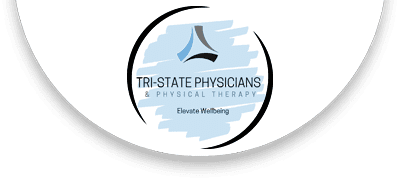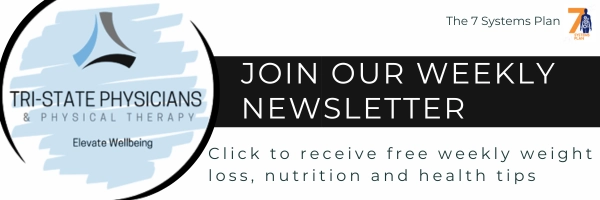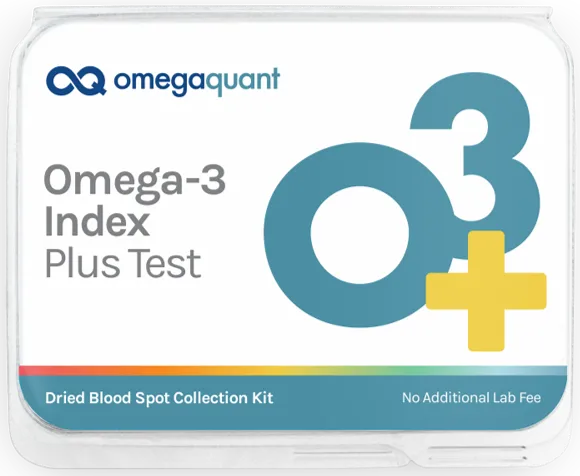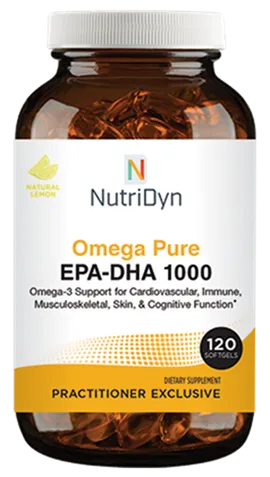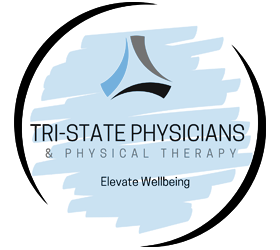Are You Buying Fake Fish Oil in South Sioux City NE?
The Critical Importance of Omega-3s in Modern Diets
Recent studies indicate a concerning trend: a substantial portion of the population, particularly in Western countries such as the U.S., is deficient in essential omega-3 fatty acids. This deficiency can result in many health challenges, including those that affect our cardiovascular, cognitive, and metabolic systems. In this newsletter, we'll look at the importance of Omega-3's in South Sioux City NE.
Omega-3 Deficiency: A Silent Epidemic in South Sioux City NE
While the symptoms of omega-3 deficiency can manifest in several ways, the clinical signs often go unnoticed. This oversight is primarily because routine health check-ups do not include assessments of omega-3 levels. However, those with knowledge in the field understand that the repercussions of deficiency can be severe. Symptoms such as brittle nails, irregular sleep patterns, and lackluster hair are just superficial indications of a more profound imbalance in the body.
The underlying issue stems from the imbalance between omega-6 and omega-3 fatty acids in the modern diet. Processed foods, prevalent in Western diets, are often high in omega-6 fatty acids, which can overshadow the beneficial effects of omega-3s.
Omega-3 Deficiency and Its Implications
According to GrassrootsHealth, a nonprofit public health research organization, the typical diet for as many as 80 to 90% of individuals in some countries (shown in red in the map below) does not provide enough essential omega-3 fats, leaving most of the population deficient.
With a growing excess of omega-6 fats in the Western diet, omega-3 deficiency has become a life-threatening, widespread epidemic.
Consumers in Western countries, such as the U.S., consume high omega-6 fats from processed foods and vegetable oils and less omega-3 fats from sources like wild-caught (not farmed) Alaskan salmon, herring, anchovies, and sardines.
As you can see below, the red zones represent regions where the average blood levels of the long-chain omega-3 fatty acids, docosahexaenoic acid (DHA) and eicosapentaenoic acid (EPA), fall below 4%—a severe level of deficiency. Ideal, healthy levels are higher than 8%, represented by the green regions on the map.
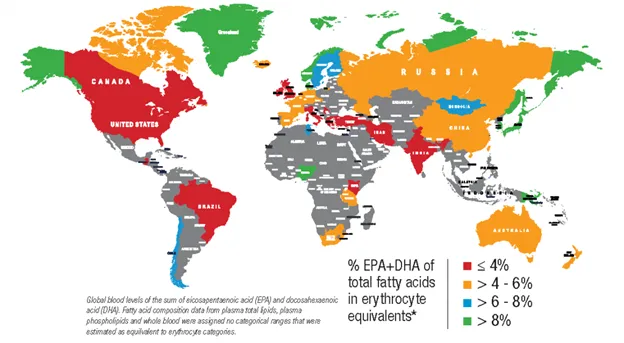
Research consistently indicates that a deficiency in omega-3s can impair overall health. Specifically, an omega-3 index lower than 6% is associated with a heightened risk of:
- Cardiovascular issues.
- Accelerated cellular aging.
- Cognitive decline.
- Visual impairments.
Determining Your Omega-3 Status
Measuring omega-3 levels is becoming increasingly critical for those invested in their health. Currently, the most precise method for this assessment involves analyzing red blood cell membranes. Home test kits, such as the Omega-3 Index Plus Test Kit, offer insights into one’s omega-3 status, ensuring that individuals understand their health.
Strategies for Optimal Omega-3 Levels
The corrective strategy for addressing this deficiency is two-fold. First, reduce the intake of foods high in omega-6 fats. Subsequently, consume more omega-3-rich foods, such as wild-caught salmon, herring, sardines, and anchovies.
The evidence is clear, with over 23,000 published research papers affirming the benefits of omega-3s. Omega-3 fatty acids safeguard cardiovascular health, cognitive function, and metabolic balance. Therefore, maintaining optimal levels of these essential fats is non-negotiable for those striving for optimal health.
For those unable to consume these foods regularly, omega-3 supplements are a practical alternative. However, as with all supplements, it’s imperative to prioritize quality and sourcing.

Caution: The Fishy Business of Fish Oil
But here’s the catch. Not all fish oil is the real deal. Case in point: a lawsuit against The Bountiful Company’s Nature’s Bounty claims that their product doesn’t contain an iota of the omega-3 treasure found in fish.
Fish like wild salmon, sardines, and a few others are bursting with EPA and DHA, the omega-3 caliber known for their roles in brain and heart health. Science-backed evidence shows that feasting on fatty fish several times a week can decrease the risk of heart disorders. But since many individuals aren’t huge fish fans, fish oil supplements have become their go-to. Sadly, many fish oils are empty of the prized EPA and DHA.

This lack is troublesome. The global fish oil market clocked in at a whopping $1.9 billion in 2019 and is projected to balloon to $2.8 billion by 2027. But here’s where things get problematic: some fish oil supplements have undergone a process that strips them of natural EPA and DHA. The lawsuit revealed the product wasn’t genuine fish oil and lacked the acclaimed EPA or DHA.
Diving Deeper: What’s the Deal with Omega-3 Ethyl Esters?
Many fish oil supplements undergo a trans-esterification chemical process that turns the oil into something more “Frankenstein” than fish, dramatically different from that found in sardines. Through this chemical dance, fish oil is transmuted, and the Omega-3s morph into something unnatural.
Labeling guidelines state that dietary supplements should use the product’s actual name to give consumers straight-up facts. When fish oil undergoes such chemical contortions, it’s transformed into something else entirely and shouldn’t be dubbed “fish oil” anymore.
Synthetic vs. Natural
Some contend that the “reasonable consumer” wouldn’t split hairs over whether their omega-3 fats come in one form or another. But here’s the lowdown: In fish, DHA and EPA come as triglycerides, which the body can easily use. On the other hand, most commercial fish oil supplements serve them as ethyl esters, a kind of synthesized version.
This synthetic version can be more challenging for the body to absorb and may even lead to oxidative stress—the opposite of why someone might be taking fish oil in the first place. Always go with the forms found in nature.
Reeling It In—The Ultimate Omega-3 Source
The golden rule? Aim to get your omega-3s from whole foods like wild salmon, sardines, and mackerel.
Omega Pure EPA-DHA 1000 is my go-to product for those seeking an alternative to fish. OmegaPure EPA-DHA 1000 is a super-concentrated and purified fish oil supplement containing evidence-based doses of the critical omega-3 essential fatty acids EPA and DHA in triglyceride form. It has been tested for contaminants, unlike many on the market. An extensive body of clinical research has demonstrated the efficacy of this supplemental EPA and DHA for:
- Healthy cardiovascular function
- Healthy immune function
- Musculoskeletal support
- Skin vitality
- Cognitive support
- EuroFins batch tested for over 450 potential contaminants
- Triglyceride form
So, the next time you’re out fishing for omega-3s, ensure you know what’s on the end of your line!
For Your health,
Dr. Pat
Video of the Week
Recipe of the Week
From Teresa’s 7 Systems Kitchen
Baked Salmon
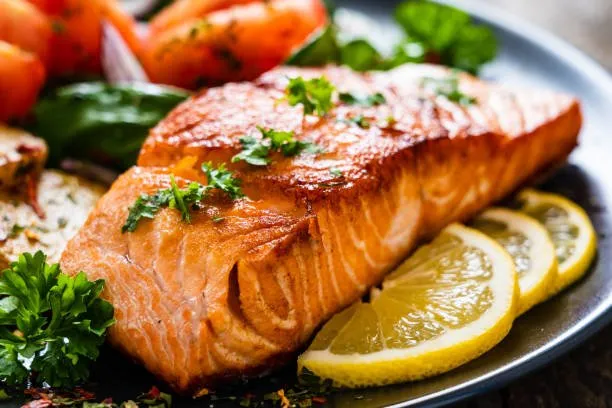
- 2 salmon filets – about 6oz. ea. (Choose wild caught Alaskan salmon fillets. NEVER farm raised!)
- 1 Tablespoon good quality extra virgin olive oil
- ¼ teaspoon Himalayan pink salt
- 1/8 teaspoon fresh ground black peppercorns from Thrive Market
- ½ teaspoon Italian Seasoning from Thrive Market
- Optional: lemon juice
Instructions:
- Preheat oven to 400°. Line baking sheet with parchment paper. Spray with olive oil. Place salmon, skin side down, on sheet and season with salt and pepper.
- Stir together olive oil, Italian seasoning and lemon juice. Spoon over fillets and rub in thoroughly.
- Bake for 12 – 15 minutes or until the salmon is cooked through.
(I googled how to bake salmon and it seems everyone has a different temperature preference, length of time and doneness!?! Experiment until you find what works best for you.)
Sign up below to get our weekly newsletter
sent directly to your email inbox!
OFFICE HOURS
Monday
8:00am - 6:00pm
Tuesday
8:00am - 6:00pm
Wednesday
8:00am - 6:00pm
Thursday
8:00am - 6:00pm
Friday
8:00am - 6:00pm
Saturday
8:00am - 10:45am
Sunday
Closed
Tri-State Physicians &
Physical Therapy Clinic
3900 Dakota Avenue #6
South Sioux City, NE 68776

